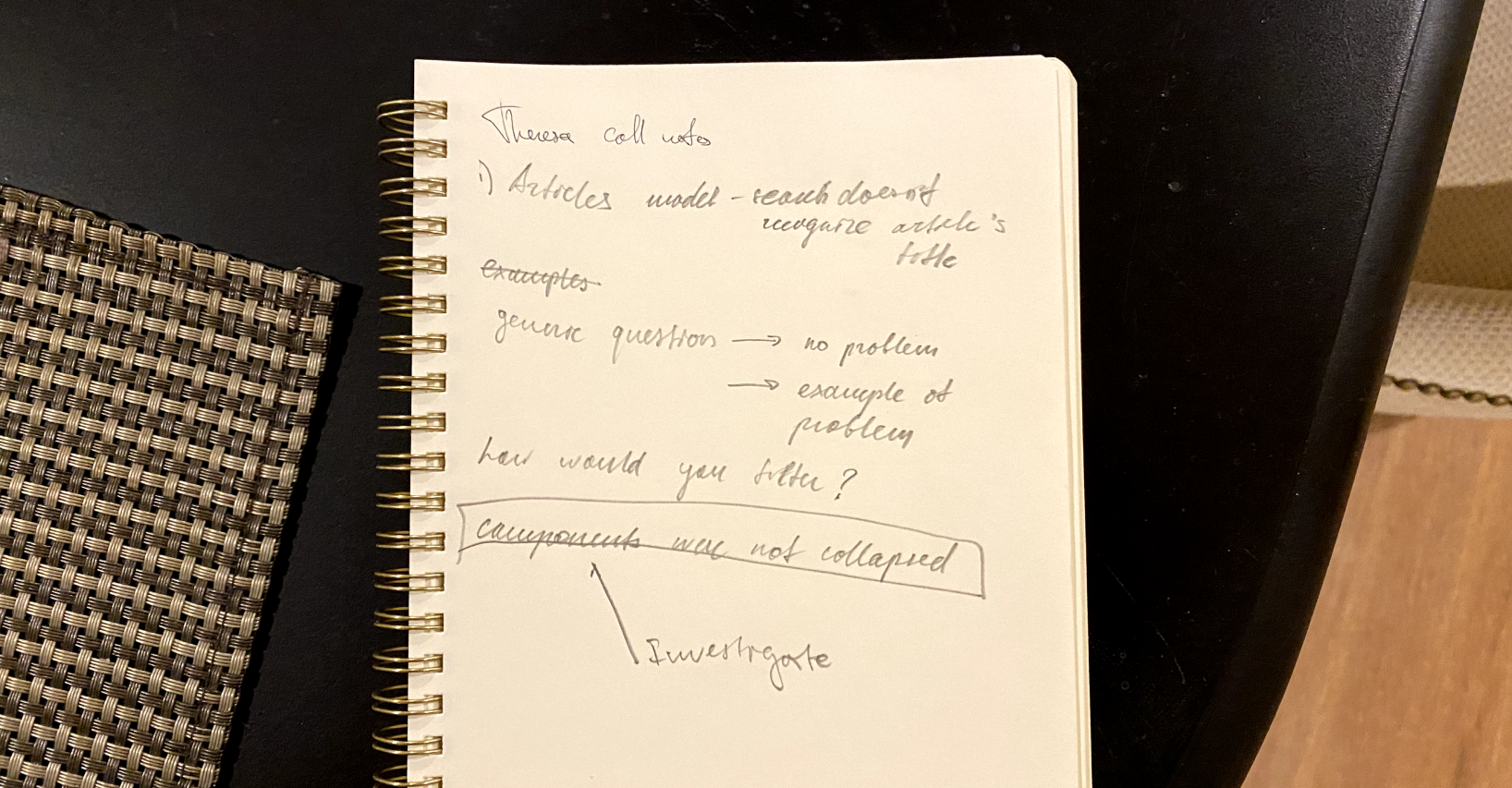4 user interview tricks that take any conversation to the next level
dr
Here is a short collection of mental tricks that I have developed over the years of interviewing people at work.
Reacting to keywords
I've realized that I have unknowingly trained my brain to react to users saying words like easier/harder, faster/slower, important, annoying, confusing. Unfortunately, people usually don’t explain exactly why something is easier or harder, and even when they do, they tend to avoid elaborating (especially if it's something unpleasant). At the same time, it's often where the tasty insights are hidden: we want to know why a certain solution is better or easier, and why the one we're offering is confusing or annoying.
I have found it helpful to learn to automatically recognize and react to these keywords. Catching such "something is hidden here" signals along the way and asking follow-up questions allow to dig deeper into users' emotions and lower-level motivations.
To illustrate this point, here's a short recap of an interview with a content editor that we have recently had at Hygraph. Catching the keyword and digging deeper allowed us to validate editors' main motivation - create content faster:
User: I edited the content in Google Docs, and then copied and pasted it into the CMS. It was very important that the formatting was kept after I pasted it into the CMS. Then I proofread the content once again, and published it.
Interviewer: Why was it important that the formatting was kept?
U: Because I didn't have to spend time on the boring part of the job - applying the heading formatting and highlighting words inside paragraphs once again.
I: And why is it valuable for you?
U: Because I can finish creating the content entry faster.
Let the user tell her story, make notes and circle back
It's very tempting to ask follow-up questions immediately when a user mentions a keyword or anything that catches your attention. This could indeed lead to discovering an interesting insight, but could also deprive the user of the opportunity to tell a coherent story, and you - of understanding the full picture.
This is especially relevant when a user answers questions about specific past behavior and reconstructs their steps in chronological order.
What worked for me is making short notes during the interview that allow me to return to the interesting points after the user shares everything they have in mind. Here's how it looks:

Vulnerability opens up
Sometimes (very often) I don't fully understand what the user is saying to me. My first reaction is wishing to hide my flaw and skip this uncomfortable part as quickly as possible so that I don't make a fool of myself. However, I believe that doing so is another missed opportunity to increase the quality of the interview. Instead of trying to protect myself from being exposed, I'm learning to embrace the situation and show my genuine vulnerability.
“I apologize but I didn’t fully understand it, you've mentioned something about X, can you please explain it to me once again and elaborate?” is becoming one of my favorite conversation lubricants.
When I say so, the user doesn't automatically consider me an incompetent interviewer after. On the contrary, they tend to open up and share their point in a way that is easy to understand.
Here's why I think it works:
- humans like to explain things to others, and they get a confidence boost when they do so. Telling the user that you don't understand something (and making sure it's not their fault) creates a certain collaborative environment and invites the user to help you, and people love helping others. Especially when it's as easy as explaining their point once again.
- some users come into the interview rather nervous and see the interviewer as a person in power. Many say that their input isn't important or relevant, and think twice before revealing their real problems and concerns. This makes me believe that a little reminder about the interviewer's flawed human nature could go a long way. Showing that you’re a normal, vulnerable person who also has problems understanding, hearing and processing information makes the user feel more comfortable around you.
On the use of interjections
When talking to users in Google Meet, I often fail to shut the fuck up and not let out any interjections like hm, huh, right, uh, and so on. This behavior is particularly annoying because every little sound I make in an online call seems like an attempt to interrupt the other person. At the same time, I often notice people speak more confidently, coherently and just more when I mute myself and simply let them talk. Now, pressing the microphone button after asking a question is a rule that I strictly follow every time I want the user to open up and tell me more, even if at times it leads to awkward silences.

In other cases though, I turn interjections into a weapon. For example, when I want the user to stop talking (e.g., when they go completely off topic), I start doing the opposite - I start hm-ing, and huh-ing, and right-ing after every other word they say. I realize that it's rude, but it works - the user either wraps up their monologue quicker or addresses my sudden activity. In my defence, if you’re silent for the majority of the call, you earn the right to interrupt the other person when you absolutely need to.
Do you have other similar tricks you're using? Don't hesitate to leave a comment on Telegram or LinkedIn.